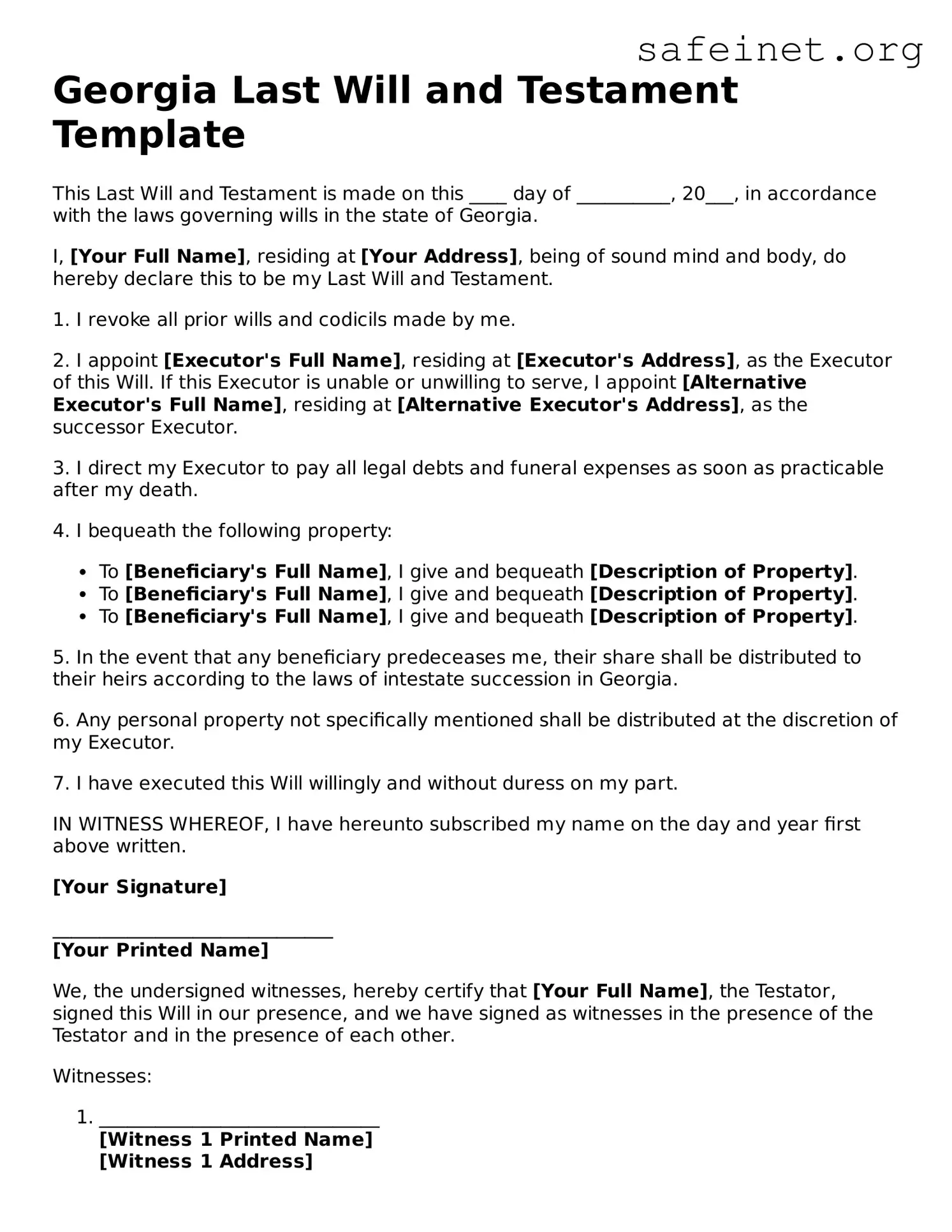Georgia Last Will and Testament Template
This Last Will and Testament is made on this ____ day of __________, 20___, in accordance with the laws governing wills in the state of Georgia.
I, [Your Full Name], residing at [Your Address], being of sound mind and body, do hereby declare this to be my Last Will and Testament.
1. I revoke all prior wills and codicils made by me.
2. I appoint [Executor's Full Name], residing at [Executor's Address], as the Executor of this Will. If this Executor is unable or unwilling to serve, I appoint [Alternative Executor's Full Name], residing at [Alternative Executor's Address], as the successor Executor.
3. I direct my Executor to pay all legal debts and funeral expenses as soon as practicable after my death.
4. I bequeath the following property:
- To [Beneficiary's Full Name], I give and bequeath [Description of Property].
- To [Beneficiary's Full Name], I give and bequeath [Description of Property].
- To [Beneficiary's Full Name], I give and bequeath [Description of Property].
5. In the event that any beneficiary predeceases me, their share shall be distributed to their heirs according to the laws of intestate succession in Georgia.
6. Any personal property not specifically mentioned shall be distributed at the discretion of my Executor.
7. I have executed this Will willingly and without duress on my part.
IN WITNESS WHEREOF, I have hereunto subscribed my name on the day and year first above written.
[Your Signature]
______________________________
[Your Printed Name]
We, the undersigned witnesses, hereby certify that [Your Full Name], the Testator, signed this Will in our presence, and we have signed as witnesses in the presence of the Testator and in the presence of each other.
Witnesses:
- ______________________________
[Witness 1 Printed Name]
[Witness 1 Address]
- ______________________________
[Witness 2 Printed Name]
[Witness 2 Address]
Executed in accordance with the laws of the State of Georgia.
